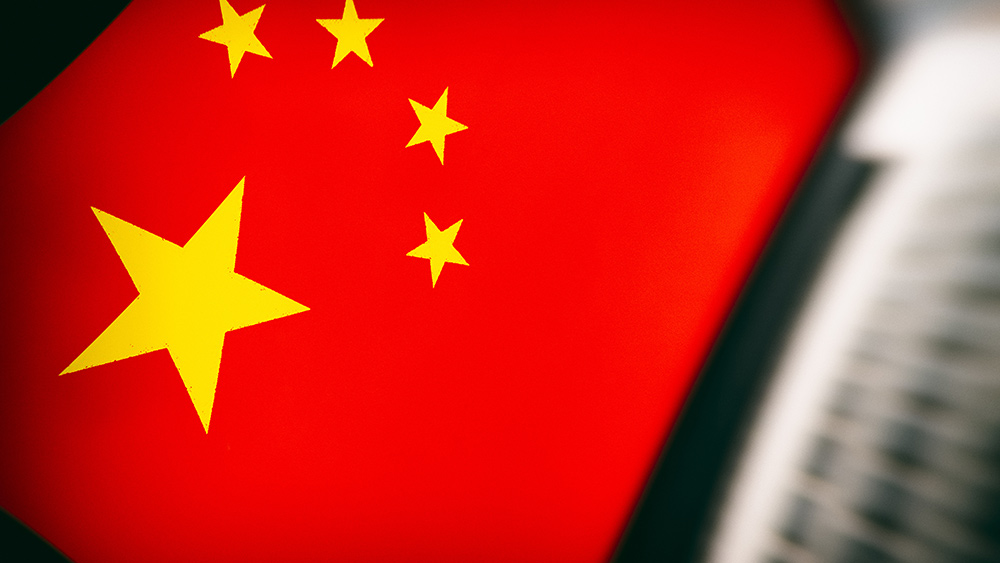
Chinese retailers on Amazon face increased scrutiny as the online retail giant cracks down on retailers using paid reviews to promote their products.
Obscure Chinese sellers of everything from home cleaning equipment to wireless headphones looking to break into the U.S. market have, for years now, been using the world's largest e-commerce platform to gain an edge.
They use an Amazon program called Fulfillment by Amazon (FBA), a program that allows third-party merchants to store their goods in Amazon's warehouses. On top of this, the program also lets the U.S. company handle shipping, returns and exchanges.
But these products still needed to be noticed on Amazon's site. One method that many of these Chinese sellers used was to offer freebies and even cash to consumers willing to write favorable product reviews. (Related: Massive fake review scam by Amazon vendors exposed.)
Amazon used to allow fake reviews to court Chinese retailers
There was a time when Amazon allowed sellers to put up incentives in exchange for reviews to help introduce the practice (of writing reviews) to customers. But in 2016, it started discouraging the practice after it realized that the freebies compromised the integrity of customer reviews.
Despite Amazon's change of heart, many merchants ignore the new rules. They instead recruited shoppers on social networks such as Facebook and reimbursed them on Paypal to elude detection by Amazon.
In addition, though the incentives violated the company's own rules, for years Amazon seemed eager to have more Chinese merchants offering an abundant supply of low-priced goods via FBA. As a result, the company's enforcement of its own policies was quite lax.
But now Amazon is seemingly cracking down on these pay-for-praise schemes. Chinese industry observers note that the company abruptly changed course and began suspending the accounts and freezing the inventories of retailers suspected of participating in the practice in the second quarter of 2021.
According to the Shenzhen Cross-Border E-Commerce Association, more than 50,000 Chinese retail accounts have been suspended from the platform. This has resulted in lost sales worth 100 billion yan ($15.4 billion).
"Suppliers cannot be repaid, bank loans cannot be applied for, employees are facing unemployment, and the profits of the past few years have been emptied overnight," said Wang Xin, the association’s president.
Talking to Global Times, tech analyst Fu Liang said that the crackdown "comes as a lesson to China's e-commerce companies." He said that Chinese companies "need to respect the rules and not exploit loopholes, which is fundamental to the long-term integrity of any enterprise, no matter what platforms it is on."
Chinese retailers now have to play fair
Amazon's crackdown comes after reports of a data breach emerged in May. This breach exposed correspondence between Amazon sellers and fake review writers.
Following this breach, the Federal Trade Commission said that it wanted Amazon to do more to fight fake reviews.
Many American retailers have also said that the crackdown is overdue. These retailers have bristled at Amazon's perceived aggressive courting of Chinese retailers, retailers who have apparently profited from the company's lax enforcement of its own review rules.
"If Amazon has made a final decision that [Chinese sellers] are baking reviews – which I believe a lot of them are – then I’m glad, because it’s causing us a lot of pain," said David Wright, owner of the Utah-based Pattern Inc., a company which e-commerce sales for many brands on Amazon. "We've been losing market share, in many cases, for years, with products that were better."
"We just weren't gaming the system," he adds.
Fake favorable reviews of Chinese products aren't the only problem American retailers are facing. According to Wright, many of his U.S. clients have complained about a flood of negative reviews the moment the Amazon ratings of their products start to rise, dragging their scores back down. Wright suspects that these negative reviews are fake, similar to the positive reviews on Chinese products.
With the crackdown, Chinese retailers now have to play on equal ground with their American counterparts.
Follow TechGiants.news for more on Amazon's crackdown on fake reviews.
Sources include:
Please contact us for more information.





















